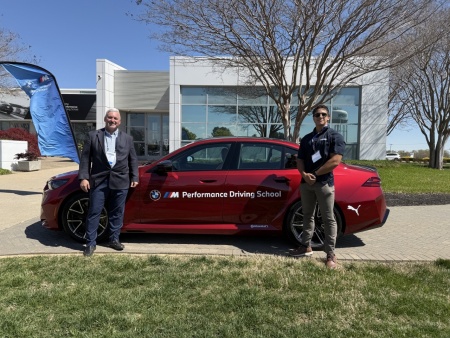FMCSA Issues ANPRM on Eliminating or Modifying Driver Application
The Federal Motor Carrier Safety Administration has published an Advance Notice of Proposed Rulemaking to solicit comments on whether the agency should eliminate or modify the driver application requirement. See 84 Fed. Reg. 8497 (March 8, 2019).
The agency requests public comment on the value of and need for this requirement, and on ways the requirement for an employment application could be changed to reduce the associated paperwork burdens for drivers and motor carriers, including but not limited to the complete elimination of the requirement.
The ANPRM notes that the Federal Aviation Administration and the Federal Railroad Administration do not impose a requirement to have prospective employees complete an employment application. Moreover, FMCSA stated the information required by 49 CFR § 391.21 might be redundant of certain regulatory requirements (e.g., §§ 383.35, 383.37, 391.11 and 391.23), and thus may be unnecessary or could be obtained more efficiently from alternative sources.
The FMCSA specifically asks a number of questions regarding this issue, including how would the elimination of 49 CFR § 391.21, which contains the requirement to have prospective drivers complete an employment application, impact a motor carrier’s ability to hire safe drivers, and if the requirement for an employment application is not eliminated in its entirety, what elements should be retained to determine the safety performance history of the driver.
FMCSA Publishes Online Information for Drug and Alcohol Clearinghouse
The Federal Motor Carrier Safety Administration has released additional online resources for Commercial Driver’s License holders, employers, state driver licensing agencies, medical review officers and substance abuse professionals regarding the upcoming implementation of its CDL Drug and Alcohol Clearinghouse on January 6, 2020.
The new clearinghouse resource webpage provides commercial motor vehicle stakeholders with a variety of informative resources about the clearinghouse, including a comprehensive fact sheet, implementation timeline, frequently asked questions and more. Additionally, CMV stakeholders can sign up to receive clearinghouse-related email updates as the implementation progresses. Companies will be able to register and create an account in Fall of 2019 to be able to access the clearinghouse when it becomes operational.
FMCSA Issues Final Rule on Upgrading CDL from Class B to Class A
The Federal Motor Carrier Safety Administration has published a final rule to amend the entry-level driver training regulations published on December 8, 2016 final rule by adopting a new Class A CDL theory instruction upgrade curriculum to reduce the training time and costs incurred by Class B CDL holders upgrading to a Class A CDL. See 84 Fed. Reg. 8029 (March 6, 2019).
The final rule notes that because Class B CDL holders have prior training or experience, they are not required to receive the same level of theory training as individuals who have never held a CDL. Accordingly, the FMCSA has added an optional theory instruction upgrade curriculum for Class B CDL holders upgrading to a Class A CDL, which removes eight instructional units involving “Non-Driving Activities.” This final rule does not change the behind-the-wheel (range and public road) training requirements set forth in the ELDT final rule.
FMCSA Withdraws Waiver Program for Drivers with Diabetes
The Federal Motor Carrier Safety Administration has withdrawn its program allowing individual drivers with insulin-treated diabetes mellitus to obtain waivers from the driver medical qualification standards in 49 CFR Part 391. See 84 Fed. Reg. 5549 (February 21, 2019). The waiver program has been superseded by the FMCSA’s final rule dated September 19, 2018, which allows certified medical examiners, in consultation with the treating clinician, to evaluate and determine whether to grant an ITDM individual a medical examiner’s certificate to drive a CMV in interstate commerce.
The new driver qualification procedures for drivers with insulin-treated diabetes mellitus became effective November 19, 2018. Diabetes exemptions under the previous program were issued for two years, but exemption holders under the new procedures must be medically certified by a certified medical examiner and issued an MEC annually.
Any MEC that was obtained under an exemption and was in effect when the final rule became effective on November 19, 2018 will remain in effect until the MEC expires or is replaced by an MEC issued under the new standard. Prior to its expiration, a new MEC must be issued under the new standard to operate a CMV.
Labor Department Issues New Proposal on Overtime Exemption
The U.S. Department of Labor has issued a new proposal to raise the salary threshold for exemption from overtime requirements for executive, administrative and professional employees. The proposed rule would add about one million workers to the pool of workers eligible for overtime pay (one and one-half times their hourly rate for all hours worked over 40 hours per week).
Under current law, employees with a salary below $455 per week ($23,660 annually) must be paid overtime if they work more than 40 hours per week. Workers making at least this salary level may be eligible for overtime based on their job duties. This salary level was set in 2004. This proposal would boost the proposed standard salary level to $679 per week (equivalent to $35,308 per year). Above this salary level, eligibility for overtime varies based on job duties.
The proposal would also allow employers to use nondiscretionary bonuses and incentive payments (including commissions) that are paid annually or more frequently to satisfy up to 10 percent of the standard salary level.






